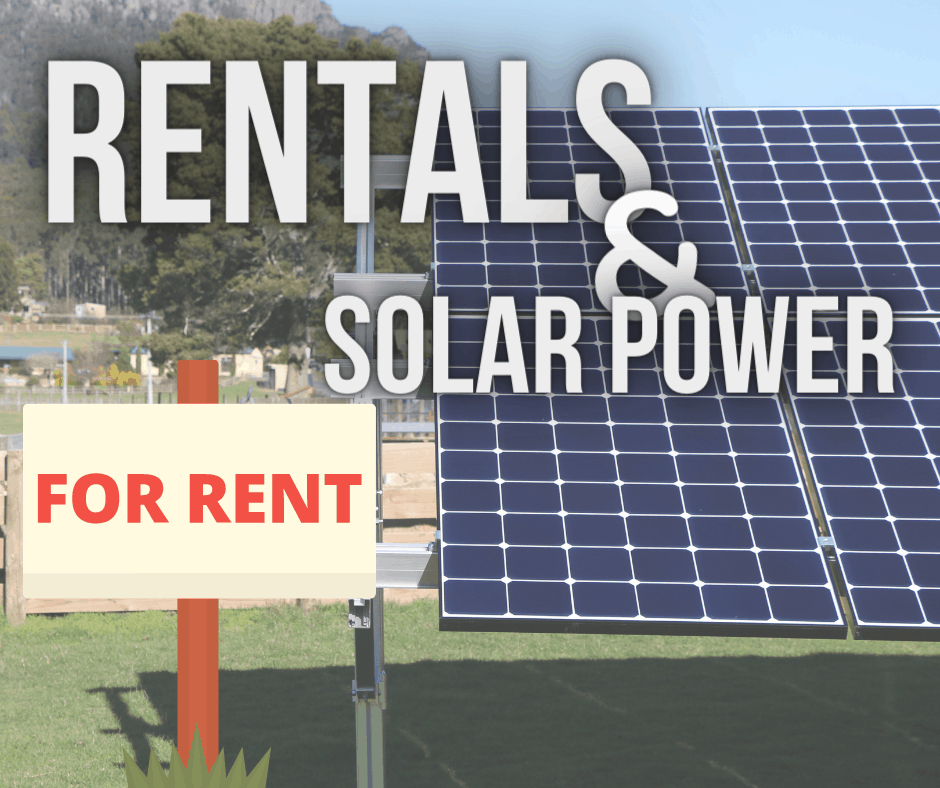Save Now, Pay Later.
With flexible payments from handypay.
Save Now, Pay Later.
With flexible payments from handypay.
Published

One of the sticking points that the availability and affordability of solar has is that customers (either private or commercial) who rent or lease a building want to investigate the possibilities of lowering their energy costs.
This issue, while possible, is a hard one to find a solution to where the landlord and the tenant both win in the long run.
From the landlords perspective they own the building but not the power bill so it’s not going to put them in an terrible position if they do nothing.
They also may look at holes drilled in roofs and additional hardware screwed to their infrastructure as more of a liability than an asset. Also if you lease a building with a solar system power system or solar hot water system the onus is on the landlord is to make sure that it is in good order and operational. But over the years we have seen a few examples of where it works out for everyone.
Commercially leased buildings are probably the easiest to find some common ground between the tenants and the landlord. Especially when returns on investment can be over 30% in this area.
Commercial spaces often draw high rents and virtually all outgoing costs are passed onto the tenant but these sites can have a high turnover of occupants with long periods of being vacant. In this day and age especially with COVID-19 still out and about, there has been a shift in the metropolitan areas from having expensive retail spaces that can be a horribly affected by quarantine lockdowns and such. Landlords are looking at ways of making these place more attractive for tenants and to encourage people to lease these spaces and more importantly, to stay. Having commercial spaces that have low energy requirements and therefore significantly much lower financial overheads does give these building a competitive advantage over buildings that don’t.
There is also the possibility for the landlord to capitalise on the energy produced on site with a solar photo voltaic system. Where the landlord charges the tenant a reduced rate of energy for the power that basically was harvested free from the site.
Some tenants have operated out of commercial buildings for years and they intend to operate for many more so they buy the solar system to get their running costs down with the full knowledge that if they decide to move the solar system stays with the building. They usually have excellent relationships with their landlords and the quid pro quo benefits of having a long term tenant do well while operating out of the building are not mutually exclusive.
There is definitely more positives than negatives but like always, if looking at solar as a long term investment, then a quality product, well thought out design and skilled installation is the key.
That’s where DMS Energy come into play; to take the project from concept to completion in such away that all parties come out better off. We can discuss the tax incentives, lease options and do production and financial return projections for our clients. We take the unknown and mystery out of these projects.
Then we have the domestic rental market.
That’s a tough one in the present market. You could nearly rent a shipping container with just a light and bucket in it for $250 a week at the moment as the supply and demand is heavily tilted to demand. There is just not enough housing stock on the market.
Having been part of this market as a landlord I have put solar hot water on houses and solar power as well. Mainly for selfless reasons as I’m a believer that every home should be equiped with energy saving features. It has however, had benefits. Tenants just don’t leave. With rents taking such a large bite out of peoples weekly income having a home where energy bill shocks are minimal to non existent just takes the pressure off people financially. This frees up more disposable income which in turn, usually gets spent in the local economy. Strong local economy’s benefit everyone.
In the mid 2000’s there was a excessive amount of properties for rent in Launceston and we were busy putting in solar hot water and solar power to makes these properties more attractive for potential tenants. That saturation has long since swung around the other way where demand has exceeded supply and we haven’t done any on private rentals since. But I think that needs to change.
If you are a landlord I think you should look at the long term benefits might be for upgrading your property to solar or heat pump hot water. Solar power, energy efficient heating and LED lights all have their part to play in making low overhead properties that are super attractive to tenants, free up disposable income and benefit the community as a whole.
There are many ways we can choose to invest for a better future but I guess we just have to decide to make a choice.
DMS Energy strives to Honestly, Ethically and Accurately assist Tasmanians to meet their energy reduction goals.
DMS Energy have advised countless locals on the right energy solutions for their home’s and business’s.




DMS Energy are not your typical energy efficiency salesmen! We are long time locals offering expert advice on solutions that are tailored to your individual needs. Talk to one of our experts today.